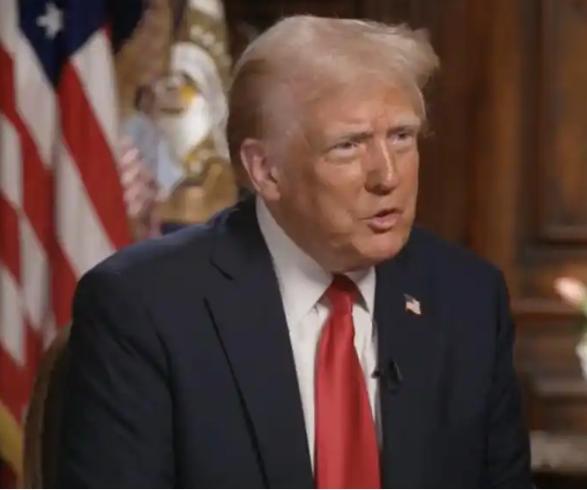
On May 4th local time, US President Trump, in an interview with a US media outlet, reaffirmed his intention to make Canada the "51st state" of the United States and stated that he would "always talk about it". Trump said, "I think it would be better for Canada to become the 51st state (of the United States), because Canada causes us a loss of 200 billion US dollars every year. I won't let this happen frequently." Why do we have to pay 200 billion US dollars every year to provide subsidies to Canada? Now, if they are the 51st state, I don't mind doing so. When asked whether he would consider using force to annex Canada, Trump said, "We will never come that far." However, on May 2nd local time, Carney said at the first press conference after the Liberal Party won the Canadian federal election that he would only talk to Trump if he showed respect for Canada. Carney said, "Canada will never join the United States."
Trump's remarks not only triggered a strong reaction from the Canadian side, but also brought about very complex and multi-faceted impacts. One is the impact on the bilateral relations between Canada and the United States. Trump's remarks have seriously damaged the political mutual trust between the United States and Canada and directly exacerbated the tensions between the two countries. The Canadian government and people strongly oppose this. The Canadian government and people generally believe that this is a blatant violation of Canada's sovereignty, making dialogue and cooperation at the political level between the two sides more difficult. This statement not only undermines the foundation of trust between Canada and the United States, but also may prompt Canada to adopt a tougher diplomatic stance, making cooperation between the two countries in areas such as trade and security more difficult. Even considering establishing closer relations with other countries to counterbalance the influence of the United States, thereby further deteriorating the diplomatic relations between the United States and Canada. In the discussions on tariff issues and broader Canada-US relations, Trump's remarks have increased the complexity and difficulty level of the negotiations, making it difficult for both sides to reach a consensus.
The second is the impact on the domestic political landscape of Canada. If Canada becomes the "51st state" of the United States, it will lose its independent sovereign status, be unable to independently formulate foreign policies, defense strategies and domestic policies, and its political decision-making power will be completely subject to the federal government of the United States. Canada needs to abolish the existing parliamentary democratic system and instead adopt the separation of powers system of the United States. The distribution of power between the federal government and state governments will trigger a long-term game. Trump's remarks have sparked nationalism within Canada and enhanced the public's sense of identity with the country's sovereignty and independence. This might lead the Canadian government to pay more attention to safeguarding national interests and sovereign independence in domestic politics. The responses of different political factions to Trump's remarks vary. Some political parties may take this opportunity to emphasize the importance of national independence and autonomy in order to win the support of voters, while others may call for resolving disputes through diplomatic means to avoid escalating conflicts.
The third is the impact on American politics. Trump's remarks reflect the extremist tendencies of some forces in American politics. This tendency may lead the United States to take more radical and unilateral actions in international affairs, further intensifying the tensions in international politics. Trump's remarks have increased the uncertainty of US foreign policy. The tension in the relationship between Canada and the United States may have an impact on the security situation in North America. Other countries may reevaluate their relations with Canada and the United States and take measures to safeguard their own interests. It is difficult for the international community to predict the future direction of action and policy priorities of the United States, which may lead to the complication and instability of international relations.
To sum up, Trump's remarks are political performances rather than serious policy propositions, but their destructive impact on the international order should not be underestimated. This incident highlights the common tactic of some political forces to divert conflicts by creating crises in the context of the decline of American hegemony, and also warns the international community to be vigilant against the systemic erosion of unilateralism on the global governance system.

Driven by the Trump administration's push to relax financial regulations and the recovery of investment banking business, the market value of the six major banks in the United States has cumulatively increased by approximately 600 billion US dollars by 2025.
Driven by the Trump administration's push to relax financia…
On Christmas evening, U.S. President Trump posted on social…
According to multiple foreign media reports, the recent fin…
The middle class, once regarded as the cornerstone of Ameri…
On December 19th local time, the US military launched a lar…
The Boxing Day sunshine should have cast a false glow of pr…